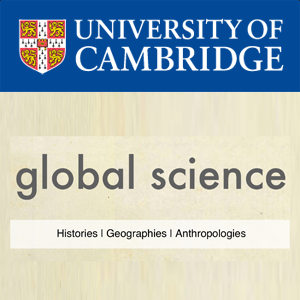Global Science - 13 May 2014 - The Modernity of Calculus in India and Beyond
Duration: 41 mins 46 secs
Share this media item:
Embed this media item:
Embed this media item:
About this item

| Description: |
The Modernity of Calculus in India and Beyond: Nineteenth-Century Beginnings, Late Twentieth-Century Debates
Professor Dhruv Raina (Jawaharlal Nehru University) Respondent: Professor Simon Schaffer (University of Cambridge) Abstract From the perspective of the historiography of mathematics this presentation deals with two seemingly unrelated concerns in the history of calculus in South Asia separated by a period of several hundred years. The first has to do with the processes leading up to the introduction of calculus into school and college curricula in 19th century India and its relation to similar processes in England in and around the same time. The second has to do with the relatively recent priority dispute concerning the origins of calculus. This time around the authorship is shifted way from either Newton or Leibniz, to the 14th century `Kerala school of mathematics’. To be fair, the claim in not so much about the origins of calculus, but of certain elements of calculus, that could possibly have reached Europe through the Jesuits - even though the evidence is still lacking. I shall argue that these two debates share a common concern that could be referred to as the modernity of calculus, or put differently the understanding that the birth of calculus inaugurated a new stage in the history of mathematics and the sciences. The birth of modernity then is closely linked with, among other things, that of calculus. In the course of the discussion it will be argued why the former may throw some light on the latter. If time permits, this may entail a discussion on the literary and social technologies of the European Jesuits of the seventeenth century in order to contextualize the kind of knowledge and the collection practices of Jesuits in the 17th and 18th centuries. This may have something to say about the history of global science or the global history of science depending on the frame chosen. |
|---|
| Created: | 2014-05-19 09:06 |
|---|---|
| Collection: | Global Science |
| Publisher: | University of Cambridge |
| Copyright: | Glenn Jobson |
| Language: | eng (English) |
| Keywords: | CRASSH; Global Science; |
| Abstract: | The Modernity of Calculus in India and Beyond: Nineteenth-Century Beginnings, Late Twentieth-Century Debates
Professor Dhruv Raina (Jawaharlal Nehru University) Respondent: Professor Simon Schaffer (University of Cambridge) Abstract From the perspective of the historiography of mathematics this presentation deals with two seemingly unrelated concerns in the history of calculus in South Asia separated by a period of several hundred years. The first has to do with the processes leading up to the introduction of calculus into school and college curricula in 19th century India and its relation to similar processes in England in and around the same time. The second has to do with the relatively recent priority dispute concerning the origins of calculus. This time around the authorship is shifted way from either Newton or Leibniz, to the 14th century `Kerala school of mathematics’. To be fair, the claim in not so much about the origins of calculus, but of certain elements of calculus, that could possibly have reached Europe through the Jesuits - even though the evidence is still lacking. I shall argue that these two debates share a common concern that could be referred to as the modernity of calculus, or put differently the understanding that the birth of calculus inaugurated a new stage in the history of mathematics and the sciences. The birth of modernity then is closely linked with, among other things, that of calculus. In the course of the discussion it will be argued why the former may throw some light on the latter. If time permits, this may entail a discussion on the literary and social technologies of the European Jesuits of the seventeenth century in order to contextualize the kind of knowledge and the collection practices of Jesuits in the 17th and 18th centuries. This may have something to say about the history of global science or the global history of science depending on the frame chosen. |
|---|---|

